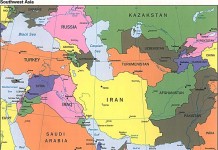Context

On December 17, North Korean leader Kim Jong Il died of a heart attack while aboard a train, according to the official statement released on December 19. So far the transition of power to youngest son Kim Jong Un has been smooth, however this is a tense time for North Korea, and the eyes of the world are keenly focused on the intensely private country.
Analysis
As with most matters pertaining to North Korea, there is very little information available about Kim Jong Un. He was educated at an elite school in Switzerland using a pseudonym, and is believed to be 28 or 29 years old. Late 2010 saw him come into more publicity during a rare convention of the Worker’s Party of North Korea, where he was appointed vice chairman of the Central Military Commission, and also to the board of the Central Committee of the Worker’s Party. One day prior to the Party meeting, he was promoted to the equivalent of General, despite having no military experience.
These were taken as clear signs that Kim Jong Un was the appointed successor after his father, taking precedence over two older siblings. It was anticipated that Kim Jong Un would ascend to his leadership role in 2012, with Kim Jong Il retiring, however the death of his father has propelled Kim Jong Un into the spotlight.
The youth and inexperience of Kim Jong Un are issues of concern both inside North Korea and for neighbors and the wider international community. It is thought that the country will be run by Kim Jong Un, his paternal uncle and a selection of the top military while Kim Jong Un grows into his position. Kim junior reportedly exhibits very similar characteristics to his father in temperament, will and determination; however the wave of hyped-up propaganda sweeping North Korea following Kim senior’s death makes it more difficult to determine the true character of the new “Great Comrade.”
There is no doubt that Kim Jong Un is being readily accepted by the North Korean public in the place of his father, however the prospect of shared power in the top echelons of the party after decades of “strongman” rule are a possible point of trouble. Should other members of the Party rise to prominence during the intermittent time between succession and Kim Jong Un being deemed experienced enough, or commanding enough loyalty to rule on his own, then a power struggle could easily ensue.
The time of transition is also a sensitive one in terms of external relations. While there are not the kind of proxy power game possible in North Korea as there are in the newly US-free Iraq, the influence of neighbors and the North’s few allies will be brought to bear on the new leadership. China’s relationship especially will be vital for the new government to maintain.
In the short term, North Korea can be expected to focus predominantly on internal affairs, and at most with relations with the South and China. The new leadership will be looking primarily to solidify its position, and return everyday life in North Korea to normal. No major diplomatic steps or upsets will be desirable during this solidifying time, as the new leadership will be keen to prove its merit first to the people and the rest of the Worker’s Party, before thinking further afield.
In the long term, the North can be expected to maintain a similar trajectory to that of prior to Kim Jong Il’s death. Without any external event to change its course, there will most likely continue to be the same kind of belligerent but back-foot stance maintained to most of the region and the US as was under Kim Jong Il. Kim Jong Un will not seek to make decisions that will in any way appear to be contrary to what his father would have done, because there appears to be a strong desire in the Korean leadership to cast the son in the exact image of his father. This is important both for the North Korean public, as well as the Worker’s Party and military are concerned.
With the succession running smoothly, concerns in Washington and in the region have lessened, although there will continue to be more attention paid to North Korea over the coming months. Unless tensions resurface between the North and South, it is unlikely that North Korea under Kim Jong Un will become a hotspot for trouble in the region in any greater capacity than it already is. The US will be setting more resources aside for monitoring the North, however it is likely Iran will remain the biggest international “pariah” and of greater concern to the US than North Korea.



